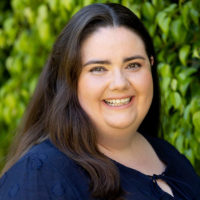Articles / Cognitive testing for dementia


writer
General Practitioner; Co-Director, Sydney Perinatal Doctors
Whether it’s part of an over 75 health assessment or fitness to drive assessment, investigating patients’ concerns about impairment, or tracking progress over time, cognitive screening is important. Cognitive assessment tools have a role, but it’s important to understand their limitations, says Dr Hilton Koppe of the Dementia Training Australia GP Education Team.
“Most things like the MMSE have been called cognitive screening tools, but actually they are not designed to be screening tests, and they are not diagnostic,” Dr Koppe explains. “There is no MMSE score that confirms or rules out dementia.”
Cognitive assessment tools form only a part of the overall assessment of potential cognitive impairment, he says.
“The diagnosis of dementia is made primarily from history,” Dr Koppe says. “Examinations and investigations form a small part, and are mostly to rule out other causes of impairment.”
Inclusion Criteria for a Diagnosis of Dementia |
|
Dementia Training Australia offers both inclusion and exclusion criteria for diagnosis of dementia. The inclusion criteria are essentially those from the DSM-V, and the exclusion criteria consider somatic, neurological and psychological comorbidities that must be either ruled out or managed as best as possible before a new diagnosis of dementia can be made. “Note in both of these, a complete absence of MMSE score,” Dr Koppe says.
Dr Koppe says most GPs use the MMSE as part of their over 75 health assessments, in part as this test is usually easily accessible in practice software, and in part because many erroneously believe they must, to fulfill the item number criteria. “MBS requirements include an assessment of cognition, but this does not require or mandate the use of an assessment tool,” Dr Koppe says.
He also stresses the importance of choosing the correct test for the patient, in light of their cultural, linguistic and educational background.
“The MMSE was not designed as a mass population screening tool,” he says. This test in particular is likely to offer incorrectly low scores for patients who are linguistically diverse and/or have lower levels of education, whilst highly educated patients with English as a first language may score full marks despite dementia.
Dr Koppe’s preferred test is the Australian GPCOG. “It’s quicker than the MMSE and less influenced by cultural and linguistic backgrounds.”
The GPCOG prompts for collateral history in domains of memory, language and function. “The key part of this is how the patient is compared to five to ten years ago,” says Dr Koppe. “This fits nicely with the inclusion criterion of gradual decline.”
“Indigenous Australians are another group that often score lower on MMSE than their true cognition,” Dr Koppe says. The Kimberley Indigenous Cognitive Assessment Tool (KICA) has been developed specifically for Indigenous populations, with different options for rural/remote patients, urban patients and Torres Strait Islanders. KICA uses picture interpretation and assesses multiple domains. Dr Koppe cautions that there is such diversity amongst Australian Aboriginal and Torres Strait Islander communities that unfortunately even this test may include pictures that are not relevant to all such patients.
Other tests GPs may be familiar with include the RUDAS and the MOCA. “The RUDAS is most validated to minimise the effects of language, culture and educational level, and the only one validated for use with a trained interpreter,” Dr Koppe says. Scoring is slightly more complicated, and the test requires physical tasks which may be difficult for patients with certain disabilities.
MOCA is the most sensitive option for early stages of cognitive impairment, but it is a requirement to complete special training before administering it.
Dr Koppe says the Clock Drawing Test is included in the GPCOG, but can also be used alone or alongside the other tests. This is useful as it assesses multiple factors. “It can also be useful to convince a family member who doesn’t really think the patient has a problem. It changes things when they watch them struggle with it,” he says.
For driving assessments, Dr Koppe recommends the Trail Making Tests. “Five things together give the most accurate assessment of their driving safety,” he says, “history of recent accidents, examining their car, trail making test part A and B, clock drawing, and the intersecting pentagon.”
Dr Koppe advises GPs to seek training in whichever cognitive assessment tools they plan to use, and to ensure that practice nurses or other staff administering them on their behalf are also trained. “If you’re going to use these tools, it’s better that they are used correctly,” Dr Koppe says.
To hear more on this topic, register here to attend Healthed’s free 14 November webcast, where Dr Hilton Koppe will be speaking.
Related article:
Mild cognitive impairment: Individualising screening and treatment – Healthed

writer
General Practitioner; Co-Director, Sydney Perinatal Doctors




Strongly support
Somewhat support
Neither support nor oppose
Somewhat oppose
Strongly oppose
Listen to expert interviews.
Click to open in a new tab
Browse the latest articles from Healthed.
You have completed the Educational Activities component of this resource.
Select ‘Confirm & claim CPD‘ to confirm you have engaged with this resource in its entirety and claim your CPD.
You will be taken to explore further CPD learning available to you.